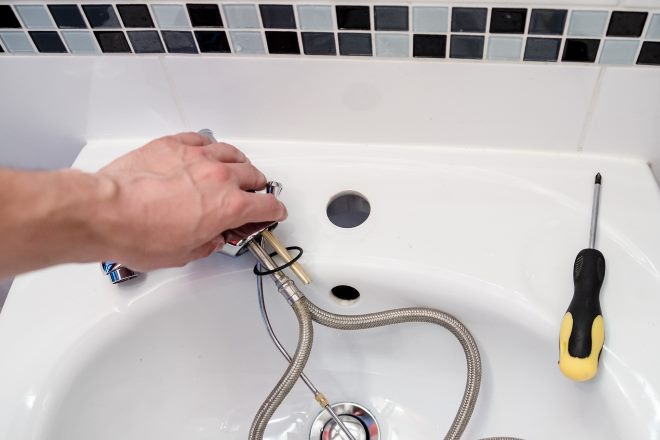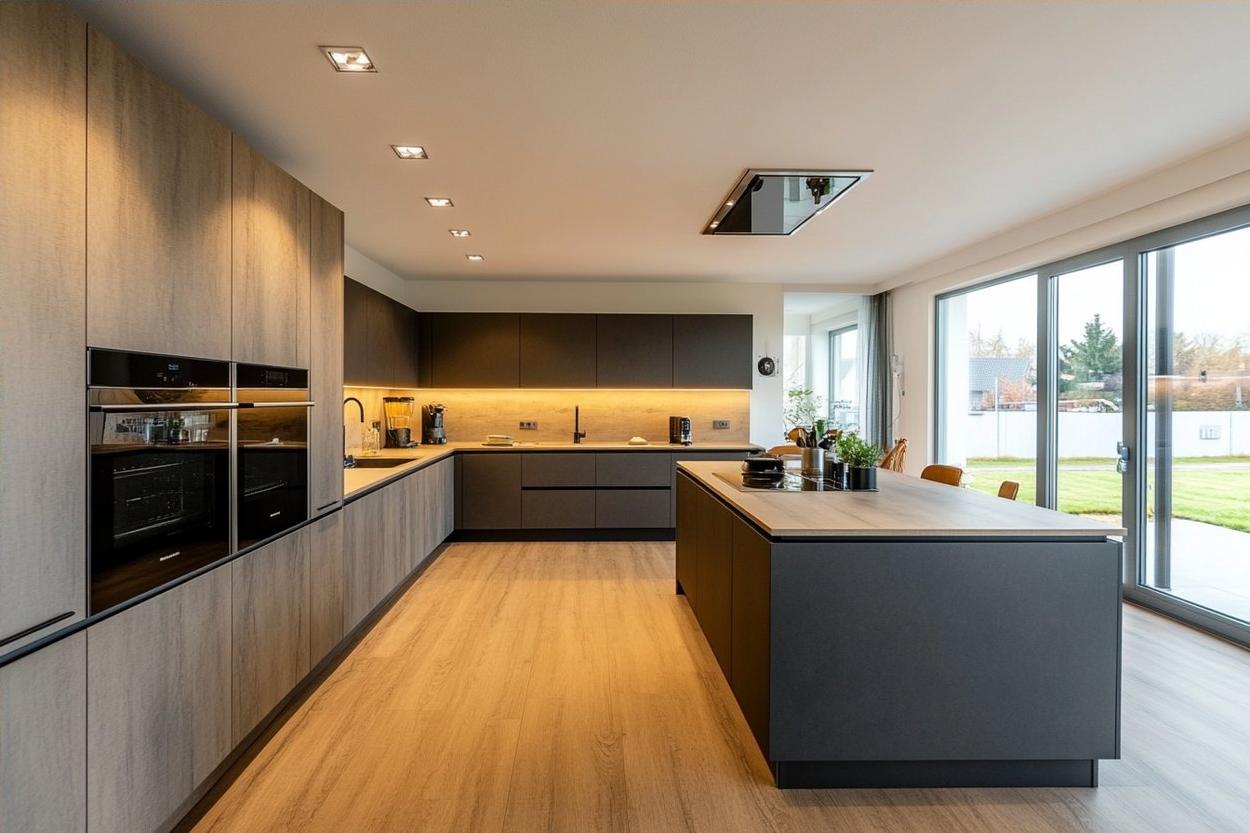Common plumbing issues and how to address them effectively
Plumbing problems can disrupt daily life and lead to costly repairs if left unaddressed. From leaky faucets to clogged drains, understanding the most frequent issues homeowners face is the first step toward maintaining a functional system. This article explores practical solutions, preventive measures, and professional insights to help you tackle plumbing challenges with confidence and protect your home from water damage and inefficiency.

Plumbing systems are essential to modern living, yet they often go unnoticed until something goes wrong. Whether it’s a minor drip or a major blockage, recognizing common plumbing issues early can save time, money, and frustration. Homeowners who understand the basics of their plumbing infrastructure are better equipped to address problems promptly and make informed decisions about when to call a professional. This guide provides detailed insights into the most prevalent plumbing concerns and offers actionable steps to resolve them effectively.
What are the most frequent plumbing problems in homes?
Leaky faucets rank among the most common plumbing issues, often caused by worn-out washers, O-rings, or valve seats. A single dripping faucet can waste gallons of water over time, increasing utility bills and contributing to unnecessary water loss. Running toilets present another widespread problem, typically resulting from faulty flapper valves or fill mechanisms that fail to seal properly. Clogged drains, whether in sinks, showers, or tubs, occur when hair, soap residue, grease, and other debris accumulate within pipes. Low water pressure can stem from mineral buildup in aerators, pipe corrosion, or issues with the municipal water supply. Leaking pipes, particularly in older homes, may develop due to temperature fluctuations, corrosion, or excessive water pressure. Water heater malfunctions, including inadequate heating or strange noises, often indicate sediment accumulation or failing heating elements.
How can you maintain residential plumbing systems properly?
Regular maintenance is crucial for preventing major plumbing failures and extending the lifespan of your system. Inspect visible pipes periodically for signs of corrosion, moisture, or discoloration that may indicate hidden leaks. Clean faucet aerators and showerheads quarterly to remove mineral deposits that restrict water flow. Flush your water heater annually to eliminate sediment buildup that reduces efficiency and causes premature wear. Avoid pouring grease, coffee grounds, or fibrous materials down drains, as these substances contribute to stubborn clogs. Install drain screens in sinks and tubs to catch hair and debris before they enter the plumbing system. Check toilet components regularly and replace worn flappers or fill valves promptly to prevent water waste. During winter months, insulate exposed pipes to protect against freezing and potential bursting. Monitor water pressure using a gauge; readings above 80 psi may require a pressure regulator to prevent stress on pipes and fixtures.
Why is plumbing important for water conservation?
Efficient plumbing directly impacts water conservation efforts and environmental sustainability. Modern fixtures such as low-flow toilets, aerated faucets, and water-efficient showerheads significantly reduce household water consumption without sacrificing performance. Fixing leaks promptly prevents thousands of gallons of wasted water annually; even small drips accumulate into substantial losses over time. Upgrading to EPA WaterSense certified products can decrease water usage by 20 percent or more while lowering utility expenses. Proper pipe insulation reduces the time needed for hot water to reach fixtures, minimizing water waste during the wait. Greywater systems, which recycle water from sinks and showers for irrigation purposes, offer additional conservation opportunities for environmentally conscious homeowners. Regular maintenance ensures that plumbing systems operate at peak efficiency, preventing leaks and inefficiencies that contribute to unnecessary water consumption.
What tools and techniques do modern plumbers use?
Contemporary plumbing professionals employ advanced tools and methods to diagnose and repair issues with precision. Video camera inspections allow plumbers to visually examine the interior of pipes, identifying blockages, cracks, or root intrusions without invasive excavation. Hydro-jetting uses high-pressure water streams to clear stubborn clogs and remove buildup from pipe walls, providing a thorough cleaning that traditional snaking cannot achieve. Pipe relining technology enables trenchless repairs by inserting epoxy-coated liners into damaged pipes, creating a new interior surface without digging up yards or floors. Leak detection equipment, including acoustic sensors and thermal imaging cameras, pinpoints hidden leaks behind walls or underground with minimal disruption. Press-fit connection systems have replaced traditional soldering in many applications, allowing faster and safer installations without open flames. Digital pressure gauges and flow meters provide accurate measurements for troubleshooting performance issues. Pipe freezing kits enable repairs on active water lines by temporarily creating ice plugs that stop flow without shutting off entire systems.
What safety practices should guide plumbing work?
Safety must be the top priority during any plumbing repair or installation project. Always shut off water supply valves before beginning work to prevent flooding and water damage. Wear protective gloves and safety glasses when handling tools, chemicals, or working in confined spaces. Ensure adequate ventilation when using solvent-based adhesives, cleaners, or working with sewer lines to avoid inhaling harmful fumes. Use appropriate personal protective equipment when dealing with potentially contaminated water or sewage backups. Never mix chemical drain cleaners, as combining different products can create dangerous reactions. Test water temperature before working on water heaters to prevent scalding injuries. When working with gas lines or appliances, verify that gas is completely shut off and consider hiring licensed professionals for complex installations. Keep a fire extinguisher nearby when soldering copper pipes or using torches. Inspect ladders and scaffolding for stability before climbing to access overhead plumbing. Familiarize yourself with local building codes and permit requirements before undertaking major plumbing projects. If a repair exceeds your skill level or involves complex systems, consulting a licensed professional ensures both safety and code compliance.
How do you choose between DIY repairs and professional help?
Determining whether to tackle a plumbing issue yourself or hire a professional depends on several factors. Simple tasks like replacing faucet washers, unclogging drains with a plunger, or installing new showerheads are generally suitable for DIY approaches with basic tools and instructions. However, projects involving gas lines, sewer main repairs, water heater installations, or extensive pipe replacements require professional expertise and proper licensing. Consider the potential consequences of mistakes; a botched repair can lead to water damage, mold growth, or code violations that cost far more than hiring a qualified plumber initially. Evaluate your skill level honestly and assess whether you have the necessary tools and time to complete the job properly. Emergency situations such as burst pipes, sewage backups, or complete loss of water supply warrant immediate professional intervention. For routine maintenance and minor fixes, DIY efforts can save money while building practical knowledge. When in doubt, consulting with a licensed plumber for an assessment provides clarity and prevents costly errors.
Prices, rates, or cost estimates mentioned in this article are based on the latest available information but may change over time. Independent research is advised before making financial decisions.
Conclusion
Understanding common plumbing issues and knowing how to address them empowers homeowners to maintain efficient, reliable systems while avoiding costly emergencies. Regular maintenance, prompt repairs, and awareness of when to seek professional assistance form the foundation of effective plumbing management. By implementing water conservation practices, using modern tools and techniques, and prioritizing safety, you can protect your home investment and contribute to environmental sustainability. Whether handling minor fixes independently or partnering with skilled professionals for complex projects, informed decision-making ensures your plumbing system serves your household well for years to come.




